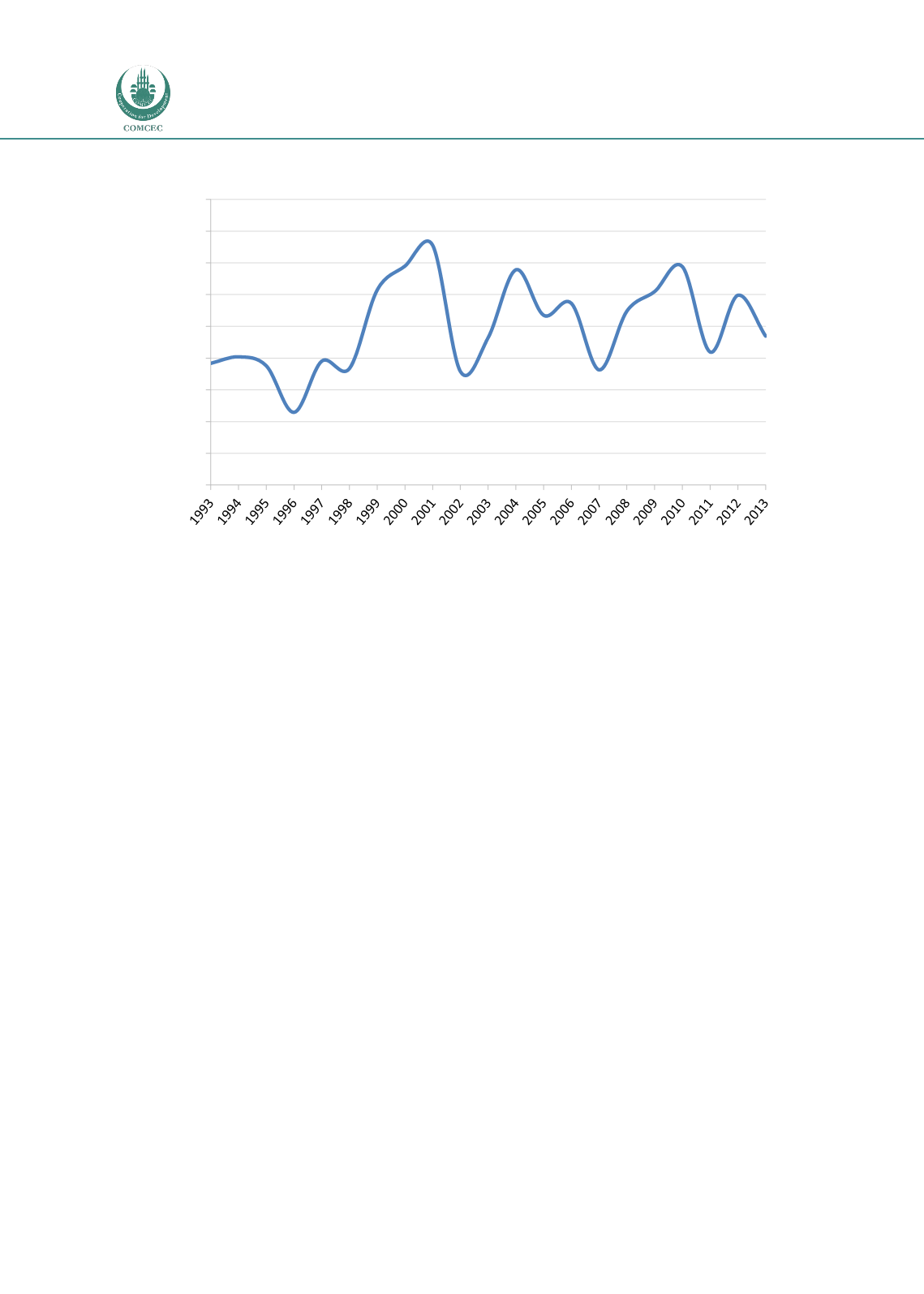

Promoting Agricultural Value Chains:
In the OIC Member Countries
90
Figure 5-11 Groundnut production in the Gambia, 1993-2013
Source: FAOSTAT, 2015
5.4.1
Institutional environment and public policy
The groundnut sector was state-controlled for a long time and still sees periodic interventions
by the Gambian Government. Initially groundnut trading, processing, and marketing were in
the hands of the government-owned Gambia Produce Marketing Board (GPMB), which also
determined the prices. The markets for inputs, nut collection and transport were organised
through the Gambia Cooperatives Union (GCU), a branch of the GPMB. The GCU’s operations
were largely inefficient: input delivery was erratic, and post-harvest crop losses were high
(WTO, 2004). In the early 1980’s, the GPMB became insolvent, also due to falling international
groundnut prices.
An Economic Recovery Programme (1986-94) was launched to reform the sector. When the
exchange rate regime was liberalised, the GPMB switched to setting depot prices rather than
farm-gate prices and as such welcomed competition between private traders and buying
agents working for the GCU. In 1990, the GPMB’s monopoly on groundnut exports was
completely removed and the whole value chain was opened up to the private sector. In need
for modernisation, productivity enhancement and quality improvement the GPMB was
privatised in 1993 and renamed Gambia Groundnut Corporation (GGC). The major shareholder
was a Swiss investor, Alimenta.
The privatization did not result in the desired benefits, however (WTO, 2004). Instead,
groundnut production declined in the mid-1990s, partly because of unfavourable weather
conditions but also because input services to smallholder farmers were discontinued by the
GGC. As a consequence, in 1998 the Government took over the processing plant without
agreement from Alimenta. A legal battle was the consequence and in the end the Gambia had to
compensate Alimenta US$ 11.2 million for the damage and losses suffered (US Department of
State, 2015).
0
20000
40000
60000
80000
100000
120000
140000
160000
180000
Tonnes

















